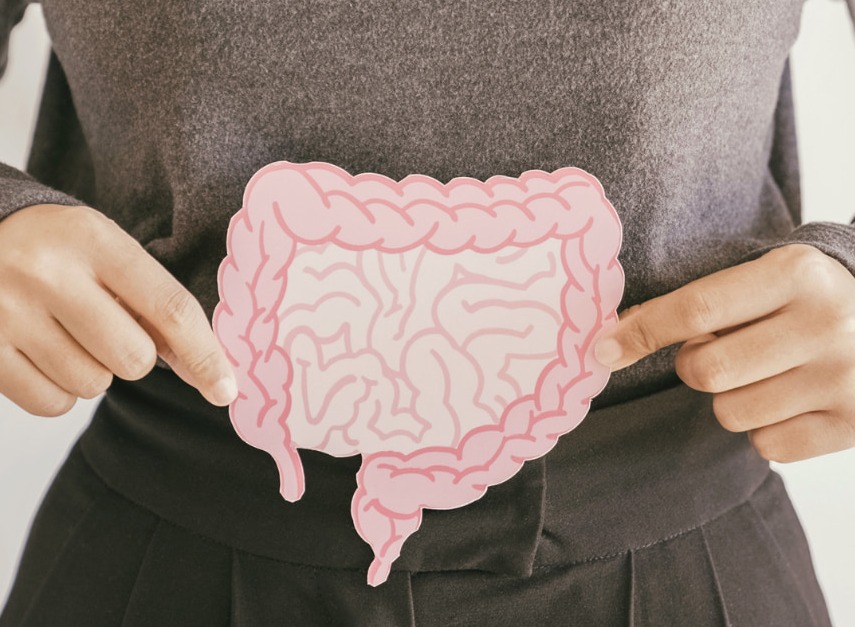How does fibromyalgia affect mental health?
Published 8 Apr 2022 • By Candice Salomé
Fibromyalgia, which affects about 2% of people in the UK, has been recognised as a real and potentially disabling condition by the UK Government and the Department for Work and Pensions (DWP).
Chronic diffuse pain, intense fatigue, sleep disorders... Patients are strongly impacted by this condition, which, moreover, is detrimental to their mental health.
So what is fibromyalgia? Why does it affect patients' mental health so much? What is the link between depression and fibromyalgia?
We explain it all in our article!

What is fibromyalgia and what are its symptoms?
Fibromyalgia is a disease that combines physical symptoms, such as pain, and psychological ones. This condition was recognised as such by the World Health Organization (WHO) in 1992. But its nature and existence are, unfortunately, still the subject of much controversy in the medical world.
Fibromyalgia combines permanent muscle and/or joint pain, chronic fatigue, sleep disorders and, very often, anxiety disorders and depression.
Patients have aches all over the body, without interruption, for months on end. Some normally painless stimuli can cause pain, and normally bearable pain can become intense.
For some patients, other symptoms may also develop, such as headaches, stomach aches, jaw pain, frequent urination, painful menstruation or tingling in the fingers and feet.
In more than 80% of cases, fibromyalgia appears in women aged between 30 and 55, with a peak in prevalence around the menopause.
Depression and anxiety are 4 times more frequent in people suffering with fibromyalgia than in the general population.
What is the link between fibromyalgia and mental health?
A complicated diagnosis
The diagnosis of fibromyalgia is often made after several years of diagnostic delay. The diagnosis is established after eliminating other diseases with similar symptoms, such as certain autoimmune diseases, because the etiology of fibromyalgia is still unknown.
Even though the condition has been recognised by the WHO since 1992, it was not until 2010 that it was recognised as a disability in the Equality Act.
For a long time, diagnostic delay has been a real problem. People suffering from fibromyalgia report a high degree of diagnostic errors, while a significant proportion of practitioners indicate that they feel helpless when faced with patients suffering with fibromyalgia.
Today, even if the diagnosis remains difficult to make because the disease is not accompanied by any organic lesion, screening is facilitated by tools such as the Fibromyalgia Rapid Screening Tool (FiRST), a self-questionnaire used in general practice. A positive response to 5 out of 6 questions allows the detection of fibromyalgia in patients suffering from diffuse pain for more than 3 months. In addition to this, a complete work-up must be performed to rule out other conditions likely to cause the same type of pain.
The lack of a cure
Another difficulty for patients is the lack of a cure. Treatment for fibromyalgia is adapted to each patient.
Thus, non-medicinal treatments are usually favoured, in particular regular physical activity. Other non-medicinal treatments have shown positive effects on certain symptoms of fibromyalgia: acupuncture, thermal cures, yoga, tai chi, qi gong, as well as behavioural and cognitive psychotherapy.
Analgesics are generally not very effective against this disease, and psychotropic drugs, such as certain anti-epileptics or antidepressants, have only a moderate effect. They are reserved for patients for whom exercise has not been efficient.
Complications of fibromyalgia
Fibromyalgia, although not a life-threatening disease, can cause serious disability that limits daily activities and threatens employment opportunities. Thus, patients with fibromyalgia tend to become socially isolated and may develop severe depression.
Indeed, there are certain illnesses that are more frequently diagnosed in people already affected by fibromyalgia: anxiety (generalised, phobias, panic attack, OCD), depression, irritable bowel syndrome (IBS), chronic fatigue syndrome, restless legs syndrome or Sjögren syndrome (dry mouth, eyes and genital mucosa).
Does depression cause fibromyalgia, or is it the other way round?
Apart from the symptoms present in the vast majority of patients affected with fibromyalgia, such as diffuse chronic pain, sleep disorders, etc., there is another syndrome that is also very common: mixed anxiety-depressive disorder (MADD), and sometimes even severe depression.
This is a very ambiguous finding insofar, as it is still impossible to determine whether mixed anxiety-depressive disorder is a direct psychosomatic effect of fibromyalgia, or its triggering factor (psychosomatic determinant).
Nevertheless, according to Dr. Charley Cohen, rheumatologist and author of La Fibromyalgie, un état douloureux enfin reconnu et pris au sérieux ("Fibromyalgia, a disorder finally recognised and taken seriously"), fibromyalgia is not comparable to any psychiatric disorder. However, more than 30% of fibromyalgia patients are also treated for depression.
The borderline between chronic pain and depression is complicated to analyse because of their interaction. Depression can be a reaction to pain. Indeed, a patient who has been suffering, whose condition is not being recognised or accepted by healthcare professionals, tends to develop depression, which can also become chronic. Some patients no longer fight the disease, they just suffer from it.
Chronic pain has repercussions on professional, emotional and family life. All this, in its turn, eventually has an impact on the patient's psyche. Finally, reactionary depression maintains or even increases the pain. It becomes a downward spiral.
Depression is therefore a symptom of fibromyalgia and not the other way round.

 Facebook
Facebook Twitter
Twitter


